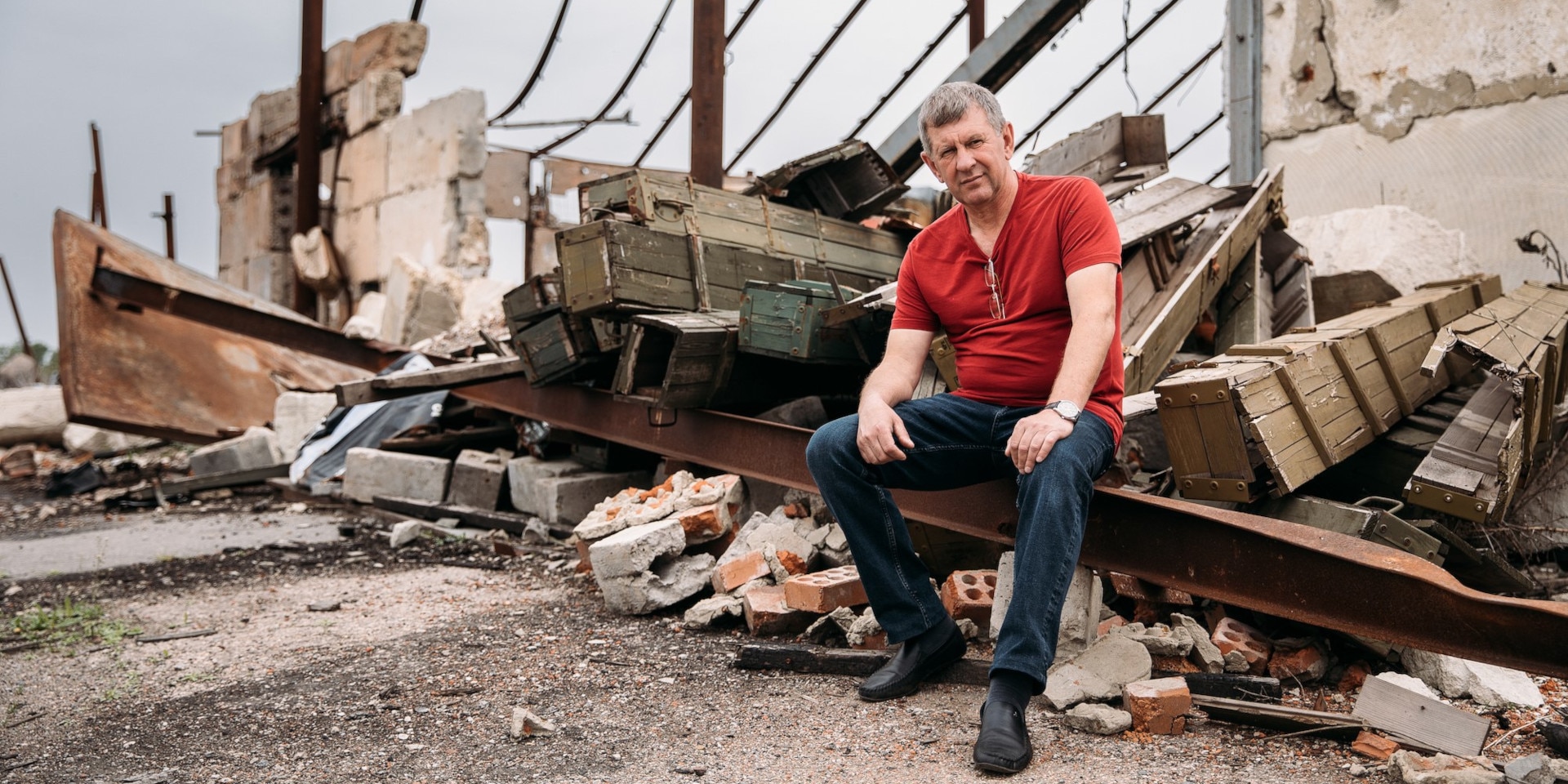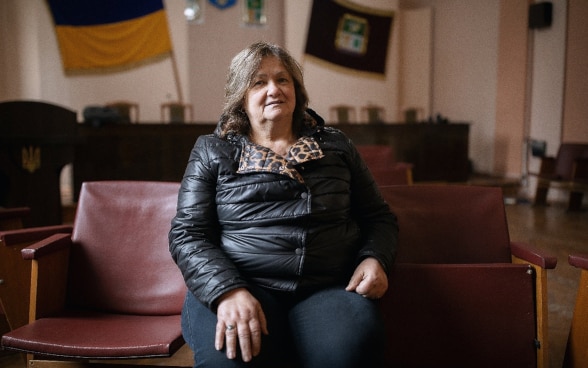In the Kharkiv, Mykolaiv and Kherson oblasts, many farmers and other actors in the food value chain have lost the ability to supply themselves. These oblasts are at the centre of the war and represent a large proportion of smallholder agricultural production. Liudmyla and Valerii, two farmers from the Kharkiv region, are among these peasants who have lost an enormous amount due to the hostilities.
Liudmyla breeds cattle for meat and dairy products, feeds calves and piglets with milk and ensures that they grow up strong and healthy. She has spent most of her life rearing and caring for livestock. This is the most important source of food and income for her family. Before the war escalated, she managed 280 cattle, 100 pigs and a few sheep. The effects of the war are evident today.
The grain storage facility, three rooms of 800 square metres each, is in ruins, their herd has been decimated: 142 cattle, including calves, cows and cattle, have been killed and there are only 50 sheep left. The memory of the lost cattle weighs heavily on Liudmyla's shoulders. "At the moment, we only have 98 hectares of land left that is accessible for cultivation, which is just enough to grow fodder for the remaining livestock. The mines are a challenge, as is the damage from artillery and the lack of resources for crop rotation,’ she explains.
A little further afield, the war also caused considerable destruction on Valerii's farm. He has dedicated his entire life to farming. He has been running his farm in the Kharkiv oblast for 20 years, where he grows wheat, corn and sunflowers. Although the quantities are not large enough for international trade, local traders ensure that his products are distributed efficiently. The farm has been a source of income for many employees and their families in the region.
During the first attacks, a 30 cubic metre fuel tank filled with diesel and petrol was destroyed. Valuable equipment was lost. Several hectares of wheat fields were burnt. The land around his farm became a battlefield and the bombing of the region led to further destruction. "If I had money now, I'd use it to rebuild. You have to repair, but you don't have to rebuild everything", explains Valerii.
Mine clearance on their land is one thing. Restoring their farms is another. To respond to the situation of Liudmyla, Valerii and hundreds of other farmers in the Kharkiv and Mykolaiv oblasts, the World Food Programme (WFP) has teamed up with the UN Food and Agriculture Organization (FAO) and, in collaboration with the FSD, launched a joint programme for the period 2023-2026 to support small farmers and rural families most affected by the war. The project is financed by the Ukrainian Humanitarian Fund and supported by a Swiss contribution totalling several millions.
Liudmyla asked the National Agricultural Register for help and quickly received support from the FAO – a voucher worth 1000 US dollars, which she used to buy calves and thus ensure a solid new start for her new farm. With a further 5000 US dollars, she was able to buy the corn seed, fertiliser and pesticides she needed to set up and run her farm.


